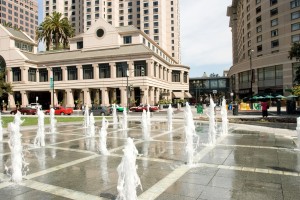By Ryan C. Wood
If you are searching for a San Jose bankruptcy lawyer please give us a call toll free at 1-877-963-9543 to schedule a free consultation. All of our consultations are with experienced attorneys that have filed hundreds of Chapter 7 and Chapter 13 bankruptcy cases. Our San Jose office is conveniently located at 111 N. Market Street, Ste. 300 San Jose, California 95113. After we schedule the free consultation we will email you our Client Information Form to fill out prior to the consultation. For the consultation we ask that you provide a few recent payments or proof of income, the completed Client Information Form and any other documents you believe will be helpful.
Affordable Required Courses
One the many benefits to retaining us as your San Jose bankruptcy lawyer is the low cost of the required courses. We have negotiated the lowest prices we know of for both courses. The first course, credit counseling, is $5.00 (each, and the second course, financial management, is $7.95 (for a single person or couple). We have heard of some San Jose bankruptcy lawyer charging their clients as much as $100 or more of these courses.
Personal Service
There are many reasons why you should choose us as your San Jose bankruptcy lawyer, but the most important is that we provide you with superior service. We return all phones calls within 24 hours and respond to emails each day. The number one complaint about attorneys is the lack of communication or timely returning of calls. The opposite is true of us. We are constantly following up with our clients to obtain information and remind them of deadlines to ensure the process is smooth and everything is completed in a timely manner.
We Put Your Interests First
A concern you should have is whether your San Jose bankruptcy lawyer will put your interests first or their own pocket book. Whether you qualify for a Chapter 7 bankruptcy and if so possibly why filing a Chapter 13 case is in your best interest is a big deal. If the San Jose bankruptcy lawyer you speak with does not regularly file Chapter 7 cases they may not be too familiar with the intricacies of the means test. At the same time, even if you qualify to file a Chapter 7 and discharge of your debts filing a Chapter 13 still might be in your best interest. If you are self-employed or own property that has equity even though you qualify to file a Chapter 7 your might not want to deal with the possible results. Most Chapter 7 trustee’s will make your shut down your business while the case is pending and a Chapter 7 trustee may allege your house is worth more than you think it is. In either situation if you had filed Chapter 13 you would not be dealing with the headaches to resolve these issues. Choosing the right San Jose bankruptcy lawyer is essential to obtaining relief from your debts and moving on with life.
If you are struggling with your house payment, taxes, car payment or credit card debts please give us a call at 1-877-963-9543 to schedule a free consultation. You will find our open and honest approach to filing bankruptcy stress free and refreshing. We also recommend that you speak with another San Jose bankruptcy lawyer.
